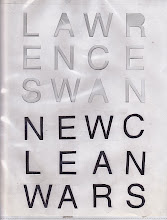Jesus takes Jerusalem
Matthew 21
Jesus' entry into Jerusalem is reported in all four gospels, with some
chronological variation and other differences. His riding on a colt or
a foal or a donkey through the gate, coming from Mount of Olives, is
taken a sign, as if this street theater was using well-known symbols
of the Messiah as victorious warrior king returning from battle and/or
wealthy bridegroom coming to delight in his bride (Some chapters back,
Jesus refered to himself as the bridegroom). Anyway, the gospel
versions of what in itself seems a non-event, carries an
overdetermined load of literary reference. That is to say, the arrival
of Jesus in Jerusalem became a poem about the Messiah. Check out
Zechariah 9:9 (and all of chapter 9) and Isaiah 62 and Psalm 118 to
begin scratching the surface of this text.
The guerrilla theater climaxes with the cleansing of the Temple,
another complex, loaded, bit of poetry. For many this scene is about
protesting the corruption of established religion by the marketplace,
or the corruption of a culture by capitalist ideology, and it easily
becomes that as we tell the story, but it becomes more, the more we
dig at that surface. The moneychangers were there to convert Roman
money, which bore the image of Caesar and was therefore banned from
the sanctuary, with Temple money. You might recall that Peter was told
by Jesus to retrieve a shekel from the mouth of a fish (another sign
of Jonah?) which would be used to pay the half shekel temple tax for
both of them. Jesus is questioned about aother tax controversey later.
I feel that much of the context of these events is lost. In general,
Jesus is performing as a prophet, rebuking the priests and telling
them that their obsession with religious symbols has blinded them to
the needs of the people, which are the real concerns of the Father. I
don't understand why Jesus had a lot of tax collectors following him.
The tax collectors collected for the Romans, as I understand it, and
Matthew or Levi, who tradition has it was the author of this gospel,
was a tax collector who apparently left it behind to become a
disciple. So the tax collectors are noteworthy for having changed
course in their lives, as the prostitutes who followed Jesus changed
course in theirs. I am intrigued by the children shouting in the
temple and I have been wondering if these "children," who I wrote
about last week, were more like adolescents, and if there was a strong
youth movement behind Jesus.
‘My house shall be called a house of prayer’;
but you are making it a den of robbers.”
Jesus' entry into Jerusalem is reported in all four gospels, with some
chronological variation and other differences. His riding on a colt or
a foal or a donkey through the gate, coming from Mount of Olives, is
taken a sign, as if this street theater was using well-known symbols
of the Messiah as victorious warrior king returning from battle and/or
wealthy bridegroom coming to delight in his bride (Some chapters back,
Jesus refered to himself as the bridegroom). Anyway, the gospel
versions of what in itself seems a non-event, carries an
overdetermined load of literary reference. That is to say, the arrival
of Jesus in Jerusalem became a poem about the Messiah. Check out
Zechariah 9:9 (and all of chapter 9) and Isaiah 62 and Psalm 118 to
begin scratching the surface of this text.
The guerrilla theater climaxes with the cleansing of the Temple,
another complex, loaded, bit of poetry. For many this scene is about
protesting the corruption of established religion by the marketplace,
or the corruption of a culture by capitalist ideology, and it easily
becomes that as we tell the story, but it becomes more, the more we
dig at that surface. The moneychangers were there to convert Roman
money, which bore the image of Caesar and was therefore banned from
the sanctuary, with Temple money. You might recall that Peter was told
by Jesus to retrieve a shekel from the mouth of a fish (another sign
of Jonah?) which would be used to pay the half shekel temple tax for
both of them. Jesus is questioned about aother tax controversey later.
I feel that much of the context of these events is lost. In general,
Jesus is performing as a prophet, rebuking the priests and telling
them that their obsession with religious symbols has blinded them to
the needs of the people, which are the real concerns of the Father. I
don't understand why Jesus had a lot of tax collectors following him.
The tax collectors collected for the Romans, as I understand it, and
Matthew or Levi, who tradition has it was the author of this gospel,
was a tax collector who apparently left it behind to become a
disciple. So the tax collectors are noteworthy for having changed
course in their lives, as the prostitutes who followed Jesus changed
course in theirs. I am intrigued by the children shouting in the
temple and I have been wondering if these "children," who I wrote
about last week, were more like adolescents, and if there was a strong
youth movement behind Jesus.
‘My house shall be called a house of prayer’;
but you are making it a den of robbers.”






























